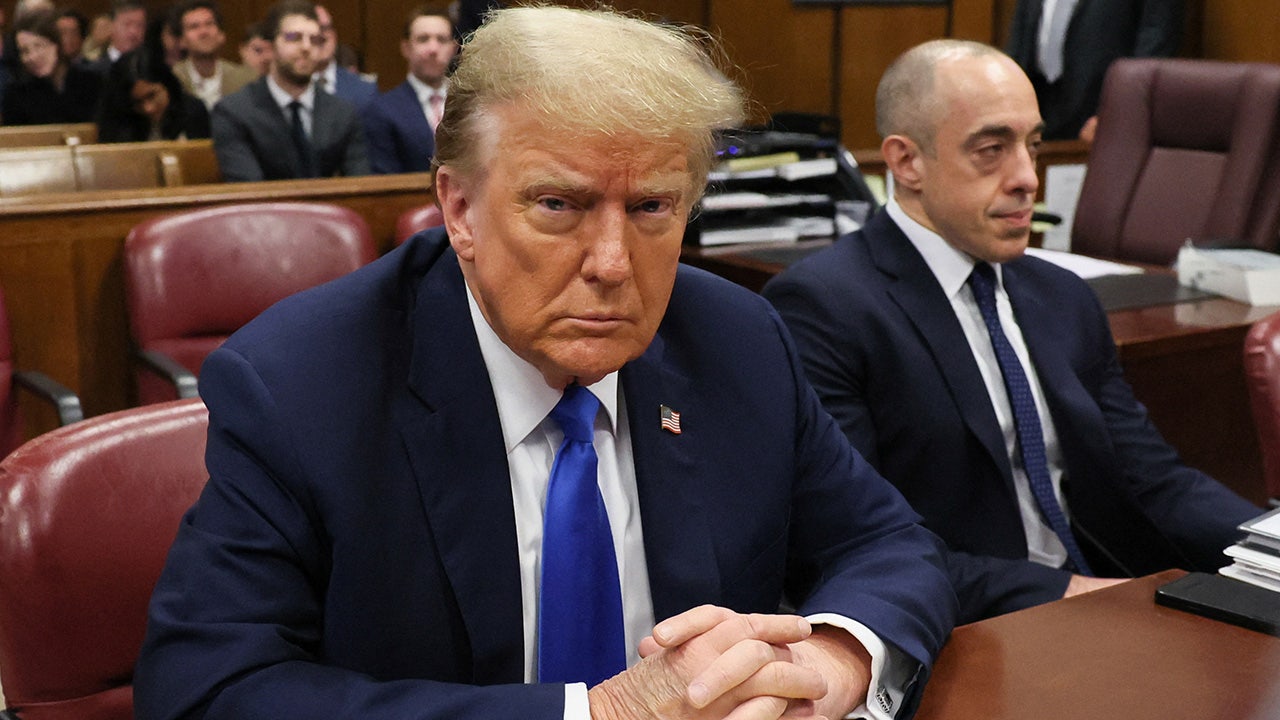Washington
Tress Way named NFC Special Teams Player of the Week

Washington Commanders punter Tress Way has been named the NFC Special Teams Player of the Week for his performance against the New England Patriots in a 20-17 win on Sunday. He punted five times and averaged 47.8 yards per punt. Way also pinned the Patriots inside their 20 yard line four times during the game. He only had one touchback, and his longest punt was 64 yards. Way was also the holder for two Joey Slye field goals and two extra points.
Tress Way has been Washington’s punter since they claimed him off of waivers from the Chicago Bears before the 2014 season. He has won NFC Special Teams Player of the Week five times(2018, 2019, 2020, 2020, 2023), and was NFC Special Teams Player of the Month in October 2022. Way has been voted into the Pro Bowl twice(2019, 2023).
Way has now moved into a tie for third all-time in NFC history in number of times a punter has received NFC Special Teams Player of the Week honors (5). He trails Thomas Morstead (7) and Sean Landeta (6) on the all-time list per NFL Communications.
— Washington Commanders PR (@Wash_PR) November 8, 2023
Way and punter Matt Turk are the only two punters in franchise history to win multiple NFC Special Teams Player of the Week honors along with at least one NFC Special Teams Player of the Month honor.
— Washington Commanders PR (@Wash_PR) November 8, 2023

Washington
Republicans take over Washington amid a worldwide anti-incumbent wave: From the Politics Desk
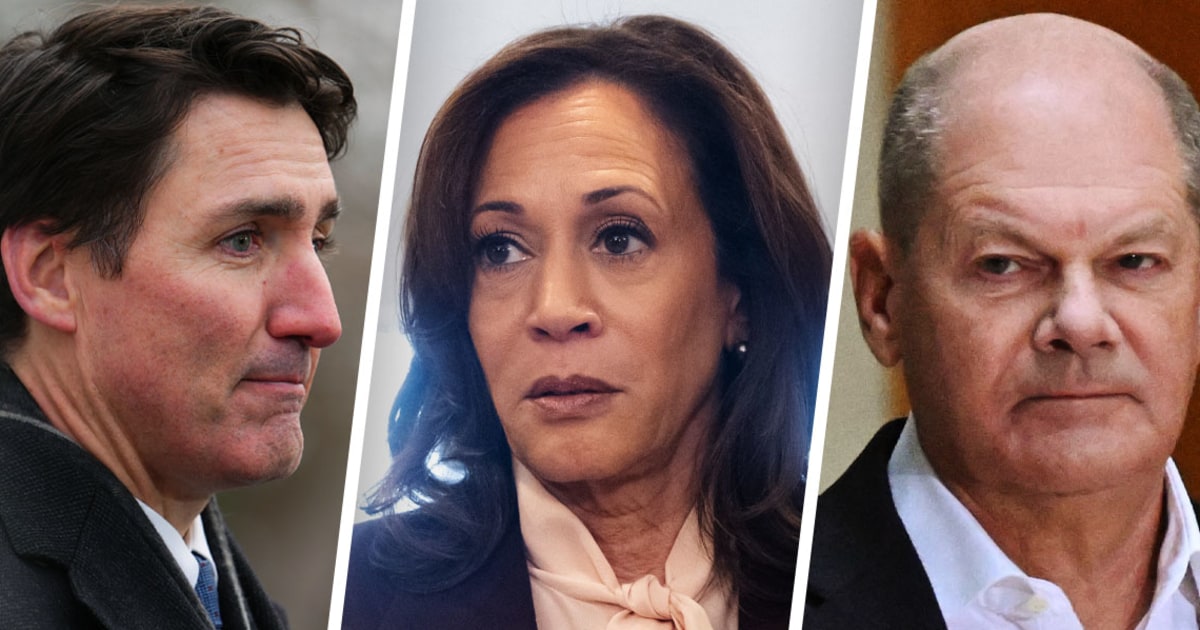
Welcome to the online version of From the Politics Desk, an evening newsletter that brings you the NBC News Politics team’s latest reporting and analysis from the White House, Capitol Hill and the campaign trail.
In today’s edition, “Meet the Press” researcher and production associate Juhi Doshi explores how the anti-incumbent wave has extended well beyond Washington in recent months. Plus, senior national political reporter Natasha Korecki examines how Kamala Harris handled her election certification role. And our Captiol Hill team look ahead to the obstacles awaiting Donald Trump’s agenda in Congress.
Sign up to receive this newsletter in your inbox every weekday here.
Republicans take over Washington amid a worldwide anti-incumbent wave
By Juhi Doshi
As the newly sworn-in Republican Congress on Monday formalized Donald Trump’s election win, it’s worth widening the lens for the global context: Last year, voters worldwide delivered a striking rebuke to incumbents and traditional political parties on both the right and left, propelled by sour feelings over inflation, deepening cultural divisions, international conflicts and frustration with the status quo and political elites.
In fact, the incumbent party lost almost every Western election in 2024. And heading into 2025, German Chancellor Olaf Scholz lost a mid-December no-confidence vote, setting the stage for elections next month, while Canadian Prime Minister Justin Trudeau, facing internal revolt, said Monday that he would resign as prime minister and leader of his Liberal Party ahead of 2025 elections there.
The trends crossed ideological and continental boundaries. In the United Kingdom, the Conservative Party saw its 14-year rule end in its worst electoral loss since 1832. For the first time in nearly 60 years, Botswana’s Democratic Party lost control in a dramatic defeat. In South Korea, voters handed the opposition Democratic Party a majority in the National Assembly, seen as a check on President Yoon Suk Yeol of the People Power Party.
Indian Prime Minister Narendra Modi and his Bharatiya Janata Party held power but were forced into a coalition government. In France, President Emmanuel Macron and his centrist alliance, Ensemble, lost ground to both the left-wing New Popular Front and the right-wing National Rally.
And in the U.S., the incumbent party lost for the third straight presidential election — the first time that has happened since the 19th century.
“I think that Kamala Harris was considered part of the institution,” said Basil Smikle Jr., a Democratic strategist and professor at Columbia University. “A lot of younger voters saw her connected to all the problems they saw with political parties.”
A set of Pew Research Center surveys found that large majorities in many nations believe elected officials don’t care what people like them think and that no political party represents their views well.
“Big numbers in many countries say, ‘I don’t feel like I’ve got a voice in politics.’ So, in lots of ways, people don’t feel like representation is working the way it should,” said Richard Wike, director of global attitudes research at Pew.
A big force behind that trend: A Pew study conducted in 34 countries with over 40,000 respondents found that economic challenges were a consistent theme globally, with 64% of adults saying their economy was in bad shape. In surveyed nations that held elections in 2024 — France, Japan, South Korea, South Africa and the U.K. — more than 70% held this view.
Jim Messina, who served as the campaign manager for President Barack Obama’s 2012 re-election in the U.S. and has also worked for the U.K. Conservative Party, noted how difficult it is to overcome voter anger over the economy.
“Obama said to me over and over and over, ‘We have to win the middle,’ ‘We have to win the economic argument,’” Messina said. “And Democrats lost the economic argument, or Kamala Harris did, by almost 10 points. And you just cannot win a democratic or a presidential election in the United States if you lose the economic argument.”
Harris oversees the certification of Trump’s election win on a drama-free Jan. 6
By Natasha Korecki
Upon entering the Senate chamber on Monday, Vice President Kamala Harris issued a simple declaration when asked by NBC News about presiding over the certification of the 2024 election: “Democracy prevails.”
Minutes later, Harris carried through, steering Congress’ collective endorsement of the Electoral College vote that she lost and affirming Donald Trump’s return to the White House.
Harris’ message of this Jan. 6 was one that both she and her predecessor on the campaign trail, President Joe Biden, conveyed time and again to voters. They advocated for “freedom” and democracy and shunned the events of the violent riot by Trump supporters on Jan. 6, 2021, that saw an unprecedented attack on the U.S. Capitol.
Missing on this day compared to four years earlier were gallows and a noose constructed outside the Capitol grounds. Or chants in support of hanging the vice president for failing to reject the will of the people and the true outcome of the election. Instead, the event transpired in the way it was meant to unfold, pro forma, taking all of 30 minutes.
Ultimately, the American electorate rejected Harris, ushering in Trump and his vows to blow up the status quo. Unlike Trump’s refusal to accept the outcome of 2020, Harris conceded her loss and attempted to offer her supporters comforting words a day after the election.
After Monday’s election certification, Harris said: “I do believe very strongly that America’s democracy is only as strong as our willingness to fight for it. Otherwise, it is very fragile, and it will not be able to withstand moments of crisis. And today, America’s democracy stood.”
Read more →
Pardon politics: Meanwhile, the details of Trump’s plans to pardon Jan. 6, 2021, defendants when he takes office in two weeks remain unclear, Ryan J. Reilly reports. More than 1,580 defendants have been charged and about 1,270 have been convicted in a sprawling investigation that has resulted in more than 660 prison sentences, according to statistics released Monday by the U.S. Attorney’s Office for the District of Columbia.
Enrique Tarrio, the former Proud Boys chairman who is serving 22 years in federal prison after he was convicted of seditious conspiracy in relation to the Capitol attack, asked Trump on Monday for a pardon.
Johnson’s push to pass Trump’s agenda in one massive bill faces big hurdles
By Sahil Kapur, Scott Wong and Julie Tsirkin
House Speaker Mike Johnson is laying out a highly ambitious strategy to answer Donald Trump’s call for passing his agenda in “one big, beautiful bill“ — a plan that will test the limits of his wafer-thin Republican majority.
Johnson said Sunday that the party-line bill will contain provisions on border security, energy, manufacturing and tax policy. He also called for extending the debt ceiling in the same bill and passing it out of the House as early as the first week of April.
Republicans plan to use the budget “reconciliation” process to pass the massive package. That allows them to bypass the 60-vote threshold in the Senate, where Republicans have 53 seats and can cut Democrats out of the process.
Key senators, including Majority Leader John Thune, have been pushing for breaking it up into two bills — allowing Republicans to score a quick victory on border funding and take some time to craft a second tax bill.
But Johnson and Trump say they prefer a single package.
“The plan in the House has been one bill. We met for two days over the weekend — two full days of discussion and strategizing with that in mind. And so that’s our assumption right now,” Johnson told reporters on Monday. “The Senate has a little different opinion and perspective on reconciliation, and what the wisest strategy is, than the House. And that’s okay, that’s part of this process.”
“We are going to get this mission accomplished,” Johnson said.
To appease lawmakers and Trump allies who want to deal with the border immediately, House and Senate Republicans will bring a series of immigration and border security bills up for votes in the coming weeks, according to two people with knowledge of those plans.
“We’ve got six months to a year to demonstrate to the American people that we’re going to bring change,” said Sen. John Kennedy, R-La. “Now whether you do it in one bill or two bills, frankly, I can teach that round or flat. There are advantages and disadvantages to both.”
Read more →
🗞️ Today’s top stories
- ☀️ DC → MAL: Trump has invited multiple groups of House Republicans, including members of the Freedom Caucus and committee chairs, to Mar-a-Lago this weekend to discuss the party’s legislative agenda. Read more →
- ⚖️ In the courts: A New York judge denied Trump’s request to hold off on sentencing in his hush money case, which is set for Friday. Read more →
- ⚖️ In the courts, cont.: A federal judge in New York has found former Trump lawyer Rudy Giuliani in contempt of court for not complying with orders to turn over assets and financial information to a pair of former Georgia election workers he defamed. Read more →
- 👋 So long, farewell: Biden is planning to deliver two major speeches before he leaves office, one on foreign policy and another that will serve as his farewell address. Read more →
- 🌊 Drilling down: With just two weeks left in office, Biden has also moved to ban new offshore oil and gas drilling along most of the U.S. coastline. Read more →
- ✅ O’Mentum? Four current and former Congressional Black Caucus members backed former Maryland Gov. Martin O’Malley for Democratic National Committee chair. Read more →
- 🎩 Fixated on Honest Abe: Trump has an enduring fascination with Abraham Lincoln, insisting that he could have beaten Lincoln in an election and that he would have found a way to avoid the Civil War. Read more →
That’s all From the Politics Desk for now. Today’s newsletter was compiled by Adam Wollner, Scott Bland and Bridget Bowman.
If you have feedback — likes or dislikes — email us at politicsnewsletter@nbcuni.com
And if you’re a fan, please share with everyone and anyone. They can sign up here.
Washington
Washington Post in 'disarray' after cartoonist quits, staff exodus
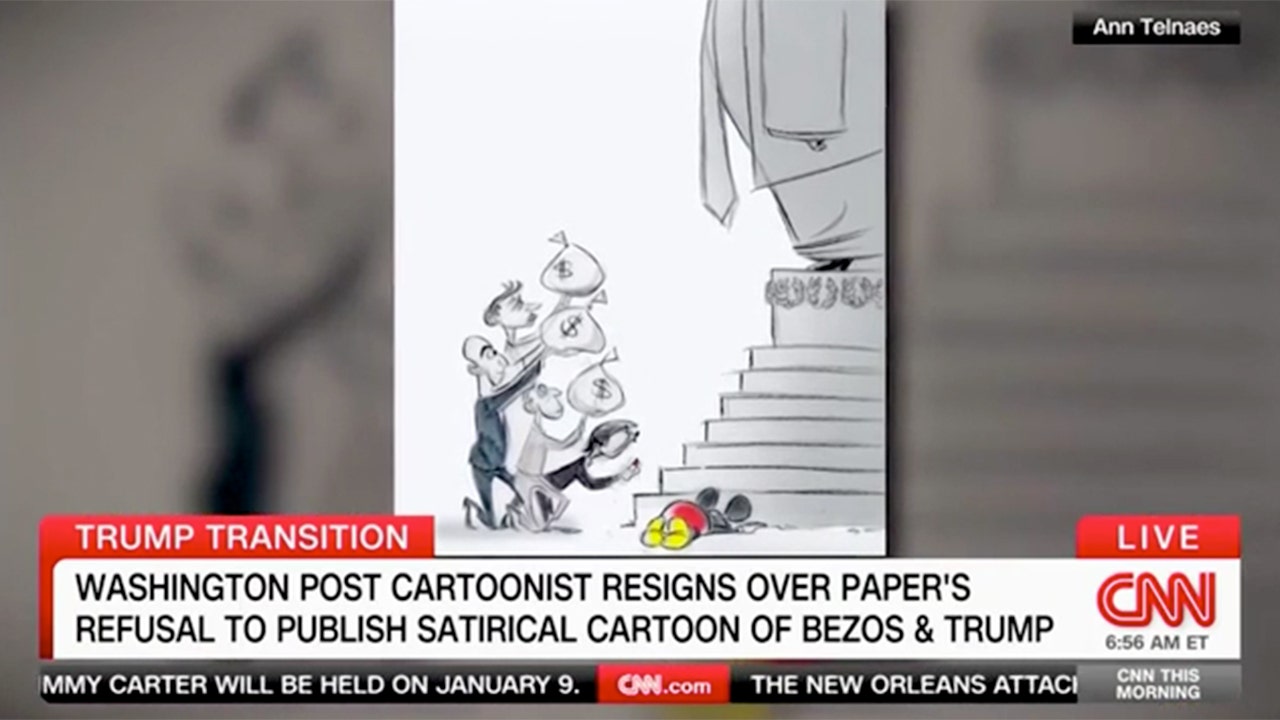
The Washington Post is in “disarray” after a long-term cartoonist at the paper quit, Axios reporter Alex Thompson said Monday on CNN.
Pulitzer Prize-winning cartoonist Ann Telnaes left the Post following the paper’s rejection of her artwork, which features Amazon founder and Post owner Jeff Bezos groveling to President-elect Trump.
“It shows what a different place the Washington Post is in comparison to the first Trump term. The Washington Post, honestly, the first Trump administration was rocket fuel for the Washington Post. Now you’re seeing it sort of in disarray. Not only the decision not to endorse [in the 2024 presidential race] but now this. You‘ve had a lot of people leave the Post and I think this Washington institution is in a very different place,” Thompson said.
Telnaes, who has worked as a cartoonist for the Washington Post since 2008, announced via Substack she was quitting after the paper killed her cartoon, which depicted Bezos and other unspecified wealthy businessmen kneeling down and holding up bags of money to the incoming president. Mickey Mouse is shown bowing down to Trump on the floor next to them.
WASHINGTON POST REPORTS LIBERALS ARE CANCELING SUBSCRIPTIONS OVER PAPER’S DECISION NOT TO ENDORSE VP HARRIS
The Washington Post’s cartoonist Ann Telnaes announced she was quitting after they killed her cartoon. (Andrew Harnik/Getty Images)
Prior to Election Day, Bezos stopped the Washington Post’s editorial board from endorsing Vice President Kamala Harris, causing several staffers to quit in protest.
On Monday, CNN contributor Brad Todd said, “What would be real courage is, if she quit because she had a conservative cartoon denied publication by her bosses, that would cause real courage.”
“She’s going to be lionized by journalists everywhere, she’ll get an award from Columbia for this,” he added. “When Jeff Bezos, Mark Zuckerberg, all those people were giving money to Joe Biden in the last administration, was that the subject of a cartoon? No it was not. It was not. This is an ideological problem. The Post deserves it.”
CNN host Kasie Hunt said earlier in the discussion that the others pictured in the cartoon were Meta founder Mark Zuckerberg, OpenAI’s Sam Altman and the Los Angeles Times owner Patrick Soon-Shing, who also stopped his paper from endorsing a presidential candidate this cycle.
In her Substack article, “Why I’m Quitting the Washington Post,” Telnaes said, “I have had editorial feedback and productive conversations—and some differences—about cartoons I have submitted for publication, but in all that time I’ve never had a cartoon killed because of who or what I chose to aim my pen at. Until now.”
CLICK HERE FOR MORE COVERAGE OF MEDIA AND CULTURE

A CNN panel discussed WaPo cartoonist Ann Telnaes’ cartoon that was killed by the Post, and prompted her to quit the paper. (Screenshot/CNN/AnnTelnaes)
Telnaes explained her drawing, stating, “The cartoon that was killed criticizes the billionaire tech and media chief executives who have been doing their best to curry favor with incoming President-elect Trump.”
Telnaes’ Disney reference appears to be a dig at the company being cited as a factor behind ABC News’ recent $15 million settlement with Trump earlier this month.
CLICK HERE TO GET THE FOX NEWS APP
In her Substack piece, Telnaes continued to proclaim her belief that the Post squashed the cartoon because of its political point. She wrote, “To be clear, there have been instances where sketches have been rejected or revisions requested, but never because of the point of view inherent in the cartoon’s commentary. That’s a game changer…and dangerous for a free press.”
Fox News’ Gabriel Hays contributed to this report.
Washington
Confirmed: Cardinal McElroy to be appointed Washington archbishop
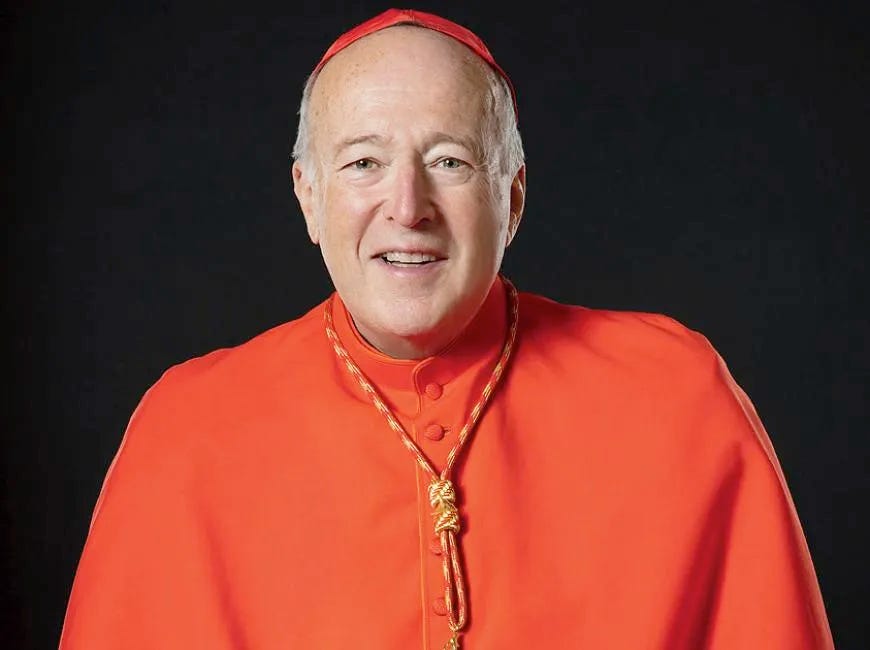
Cardinal Robert McElroy of San Diego will be announced as the new archbishop of Washington, D.C., The Pillar has confirmed.
After reporting January 4 that multiple U.S. bishops had said that the appointment was imminent, The Pillar has separately confirmed that Pope Francis has selected McElroy to succeed Cardinal Wilton Gregory in the capital see.
The announcement is expected Monday, according to sources close to the process.
McElroy’s appointment follows a lengthy and contentious process to find a successor for the Washington archdiocese, which involved a protracted standoff between some American cardinals and the apostolic nunciature.
The Pillar has previously reported that following a meeting in October in which McElroy joined Cardinals Blase Cupich of Chicago and Joseph Tobin of Newark to meet with Pope Francis during the synod on synodality in October, Francis was said to have decided against appointing McElroy.
Instead, Francis tasked former Washington archbishop Cardinal Donald Wuerl to identify a suitable candidate.
Wuerl, sources close to the process have confirmed to The Pillar, suggested Bishop Sean McKnight of Jefferson City, with Cardinal Gregory also signing off on the recommendation. However, in the weeks following the presidential election result, which saw Donald Trump reelected to the White House, Francis agreed to revisit McElroy’s candidacy.
As Bishop of San Diego and as a cardinal, McElroy has been outspoken on various subjects touching the political area, most especially immigration.
In addition to the political sensitivities of the role, McElroy will also assume leadership of more than half a million Catholics in the DC area and southern Maryland, becoming their third archbishop since 2018.
McElroy turns 71 in February and succeeds Cardinal Gregory, 77, who was appointed to succeed Cardinal Donald Wuerl in 2019, whose resignation was accepted by Pope Francis following the scandal surrounding Wuerl’s own predecessor, Theodore McCarrick, the previous year.
Despite promises of transparency by Gregory at the time of his appointment, the archdiocese has so far declined to answer repeated questions about McCarrick’s tenure, especially money raised and spent via his personal “archbishop’s fund” during his time in Washington.
McElroy has himself faced questions about McCarrick in the past, with some expressing concerns about how he responded to a 2016 warning about the now-laicized former cardinal.
In addition to lingering questions about McCarrick, McElroy will also have to reckon with a process of financial restructuring in the Washington archdiocese.
In December last year, several local priests told The Pillar that chancery officials had painted a bleak picture of archdiocesan finances, announcing sweeping reforms of its parish assessment system to bridge a multi-million dollar deficit.
As Bishop of San Diego, McElroy has at times raised eyebrows on the national stage, calling for the synod on synodality to debate issues like the sacramental ordination of women, despite Pope Francis repeatedly saying such issues were not up for discussion.
The cardinal has previously made calls for “comprehensive inclusion” in Eucharistic reception.
Following the Dicastery for the Doctrine of the Faith’s 2023 instruction Fiducia supplicans on the blessing of persons on same-sex relationships, which Rome agreed to allow the bishops of Africa to not implement in their own dioceses, McElroy hailed the “diverging pastoral paths” taken by the Church in different countries as a model of healthy decentralization, rather than a sign of contradiction within the Church.
Last year, McElroy issued a controversial homeschooling policy in the San Diego diocese, barring local Catholic home schooling groups from using parish facilities.
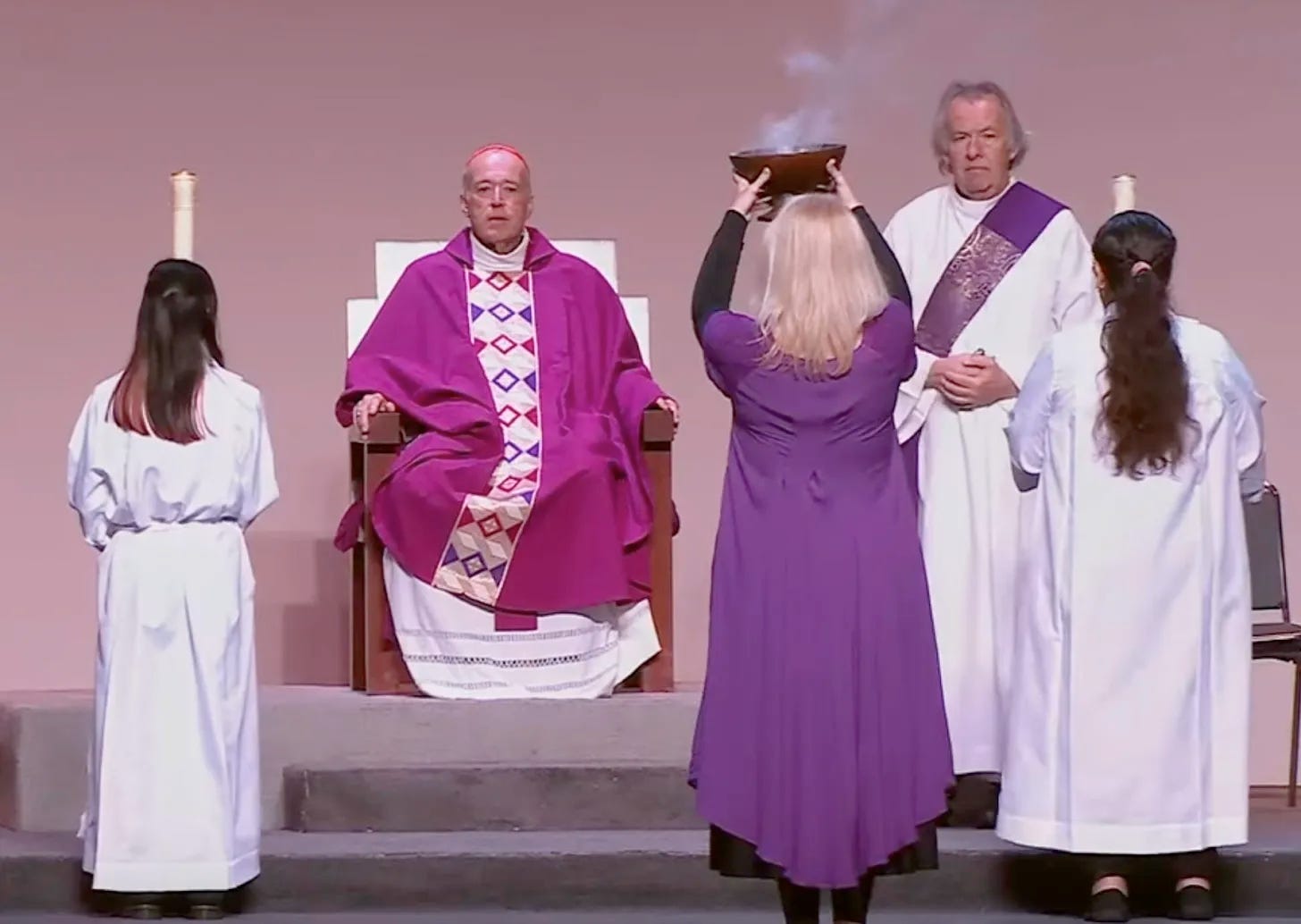
Cardinal McElroy was ordained a priest for the Archdiocese of San Francisco in 1980, serving as secretary to Archbishop John Quinn. After several years in parish ministry, Quinn named him vicar general of the archdiocese in 1995.
McElroy was named auxiliary bishop of the Archdiocese of San Francisco in 2010, and made Bishop of San Diego in 2015. Pope Francis created him a cardinal in 2022.
-

 Health1 week ago
Health1 week agoNew Year life lessons from country star: 'Never forget where you came from'
-
/cdn.vox-cdn.com/uploads/chorus_asset/file/24982514/Quest_3_dock.jpg)
/cdn.vox-cdn.com/uploads/chorus_asset/file/24982514/Quest_3_dock.jpg) Technology1 week ago
Technology1 week agoMeta’s ‘software update issue’ has been breaking Quest headsets for weeks
-

 Business6 days ago
Business6 days agoThese are the top 7 issues facing the struggling restaurant industry in 2025
-

 Culture6 days ago
Culture6 days agoThe 25 worst losses in college football history, including Baylor’s 2024 entry at Colorado
-

 Sports5 days ago
Sports5 days agoThe top out-of-contract players available as free transfers: Kimmich, De Bruyne, Van Dijk…
-

 Politics4 days ago
Politics4 days agoNew Orleans attacker had 'remote detonator' for explosives in French Quarter, Biden says
-

 Politics4 days ago
Politics4 days agoCarter's judicial picks reshaped the federal bench across the country
-

 Politics2 days ago
Politics2 days agoWho Are the Recipients of the Presidential Medal of Freedom?










:focal(0x0:3000x2000)/static.texastribune.org/media/files/f60236493478a75ab8f30d9fc569cc00/1029%20SCOTX%20at%20UH%20DS%20TT%2026.jpg)






